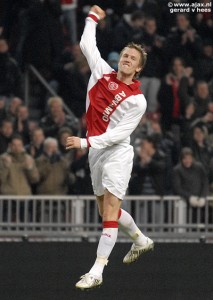 Although borders in Europe have long gone, football in Europe is still very much a national affair. Each country still has its own national league, each and every one of them with their own identity and image. Whether it is the Premier League, Serie A or Bundesliga, one immediately has an image on whether these leagues are attractive in terms of football or not. Is the league competitive, are clubs generally playing attacking or defensive football etc? We have briefly looked at how many goals are scored in each league and which teams are scoring the most goals on average in Europe. In this perspective The Netherlands and Ajax are the winners.
Although borders in Europe have long gone, football in Europe is still very much a national affair. Each country still has its own national league, each and every one of them with their own identity and image. Whether it is the Premier League, Serie A or Bundesliga, one immediately has an image on whether these leagues are attractive in terms of football or not. Is the league competitive, are clubs generally playing attacking or defensive football etc? We have briefly looked at how many goals are scored in each league and which teams are scoring the most goals on average in Europe. In this perspective The Netherlands and Ajax are the winners.
Leagues have their own image. Come to think of it. In Europe the Dutch are wellknown for the attacking kind of football they play, which often is at the expense of defense. In contrast the Italians are known for their defensive style (still dealing with the relics of catenaccio), leading to the perception that not a lot of goals are being scored. The Premier League and the Primera Division are probably the leagues where the world’s best players are gathered, both in terms of defensive and offensive players. It should be interesting to see whether some of these perceptions are true and in which countries the most and the least goals are being scored. In the table below we have summarized how many goals on average are scored each game in a specific national league during the last 5 years.
| Country | Goals | Matches | Goals/Match |
| Netherlands | 4598 | 1530 | 3.01 |
| Norway | 2826 | 968 | 2.92 |
| Switzerland | 2555 | 900 | 2.84 |
| Germany | 4342 | 1530 | 2.84 |
| Denmark | 2775 | 990 | 2.80 |
| Austria | 2509 | 900 | 2.79 |
| Belgium | 4123 | 1530 | 2.69 |
| Turkey | 3989 | 1530 | 2.61 |
| Scotland | 2959 | 1140 | 2.60 |
| Sweden | 2644 | 1026 | 2.58 |
| Italy | 4878 | 1900 | 2.57 |
| Spain | 4837 | 1900 | 2.55 |
| UK | 4794 | 1900 | 2.52 |
| Greece | 2752 | 1200 | 2.29 |
| Portugal | 3045 | 1332 | 2.29 |
| France | 4235 | 1900 | 2.23 |
The Netherlands most productive. It is interesting to note that some perceptions are indeed confirmed and that the overall ranking reasonably fits with what one would suspect. Not surprisingly The Netherlands tops the list, indeed confirming the attacking kind of football. It is also noticeable that the more northern European countries rank generally at the top half of the list, whereas the southern European countries rank at the bottom half. The last place of France surprises somewhat given the French generally play attractive football. The final conclusion is that the leagues where the most money is at stake (UK, Spain and Italy) also can be found at the bottom.
Productivity depending on different factors. We also looked at which clubs are most productive by taking the 5 year average number of goals scored during league matches. Clearly results partly depend on the strength of the league and the extent to which a club is dominating its league. Several weeks ago, we published an article on the competitive balance in European football, in which we concluded that this balance did not exist in most leagues. Hence it should be no surprise that the rankings are topped by either the European traditionals facing limited competitive balance in their leagues and hence often ending up in the top 3 or by clubs which are part of leagues where many goals are scored.
| Club | Goals/Match | Club | Goals/Match | Club | Goals/Match |
| Ajax | 2.31 | Manchester | 1.90 | Kalmar FF | 1.75 |
| Porto | 2.25 | Arsenal | 1.89 | Club Brugge | 1.74 |
| PSV | 2.18 | Real Madrid | 1.88 | AEK | 1.69 |
| Basel | 2.17 | Yboys | 1.88 | Brondby | 1.67 |
| Celtic | 2.14 | Rosenborg | 1.87 | Panathinaikos | 1.65 |
| Fenerbace | 2.10 | Inter | 1.85 | Besiktas | 1.65 |
| Lissabon | 2.10 | Galataseray | 1.84 | Liverpool | 1.63 |
| Barcelona | 2.09 | Rapid Wien | 1.84 | Lyon | 1.63 |
| Anderlecht | 2.09 | Juventus | 1.84 | IFK | 1.63 |
| Bremen | 2.08 | AC | 1.79 | Stuttgart | 1.60 |
| AZ | 2.04 | Chelsea | 1.79 | Schalke | 1.52 |
| Benfica | 2.03 | Standard | 1.79 | Sevilla | 1.49 |
| Bayern | 1.98 | Kopenhagen | 1.78 | Valencia | 1.47 |
| Rangers | 1.93 | Salzburg | 1.77 | Austria Wien | 1.46 |
| Zurich | 1.93 | AS Roma | 1.76 | Grasshoppers | 1.46 |
| Olympiakos | 1.91 | Leverkusen | 1.76 | Hamburg | 1.45 |
Ajax is taking the number one spot. This may come as a surprise to many as the club has not been league winners during the last 5 years. However, it has consistently performed in the top 4 of its league, whilst performing in a competition with limited competitive balance, also explaining the high ranking of PSV Eindhoven. Moreover, the club has always been known for its offensive kind of football. In that perspective it is nice to see it taking the number one spot. For the number two, the story is not that different. FC Porto grabbed the championship four out of the last 5 times, again in a competition even less balanced than that of The Netherlands. In spite of the fact that they are playing in relatively low scoring leagues, Barcelona, Manchester United, Arsenal and Real Madrid are ranking high due to their consistent good performances.
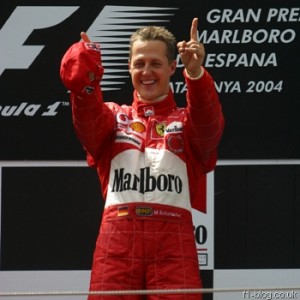 Although I have always admired Michael Schumacher for his driving capability, I never have been fond of his behavior both on and off the track. Nevertheless I have to admit I am kind of looking forward to his return to Formula One. Formula One should be fun again and probably thanks to Schumacher the sport should regain some of its lost popularity again.
Although I have always admired Michael Schumacher for his driving capability, I never have been fond of his behavior both on and off the track. Nevertheless I have to admit I am kind of looking forward to his return to Formula One. Formula One should be fun again and probably thanks to Schumacher the sport should regain some of its lost popularity again.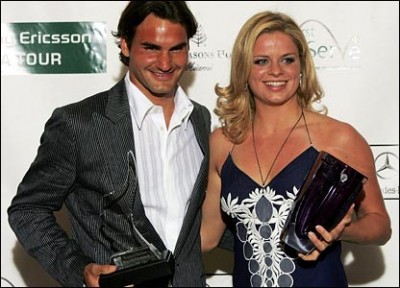 We have almost finished 2009 and have witnessed an eventful sporting year on and off the pitch. Who cannot remember the win of the Steelers against the Cardinals in the superbowl or the stunning race of Usain Bolt in which he broke the 100 metres world record by a mile, or Tiger’s great comeback after his injury (although he didn’t manage to win a major and did take a sidestep at the end of the year), or Roger Federer breaking Pete Sampras’ grand slam record. In spite of all of this 2010 should be a much more eventful sporting year given bonus events such as the Winter Olympics and the World Championships of Football. We briefly discuss the 10 biggest sports events to look forward to.
We have almost finished 2009 and have witnessed an eventful sporting year on and off the pitch. Who cannot remember the win of the Steelers against the Cardinals in the superbowl or the stunning race of Usain Bolt in which he broke the 100 metres world record by a mile, or Tiger’s great comeback after his injury (although he didn’t manage to win a major and did take a sidestep at the end of the year), or Roger Federer breaking Pete Sampras’ grand slam record. In spite of all of this 2010 should be a much more eventful sporting year given bonus events such as the Winter Olympics and the World Championships of Football. We briefly discuss the 10 biggest sports events to look forward to. 2010 is nearing the end and hence lists of names are popping-up everywhere summarizing the greatest moments, sportsmen, sportswomen etc. Clearly we are not staying behind and add our own list. As 2010 has seen many confessions of big (former) stars, we briefly stand still to look at the 10 biggest confessions in sports in 2010.
2010 is nearing the end and hence lists of names are popping-up everywhere summarizing the greatest moments, sportsmen, sportswomen etc. Clearly we are not staying behind and add our own list. As 2010 has seen many confessions of big (former) stars, we briefly stand still to look at the 10 biggest confessions in sports in 2010. 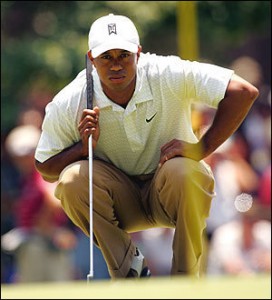 Over the last few days most of Tiger Woods’ sponsors have published press releases on their future relationship with him. Gillette and Accenture have dropped him, whilst Tag Heuer and Nike continue their support for the time being. Critics have been quick to criticize particularly Gillette and Accenture claiming that Tiger’s private matters should have nothing to do with his performance levels on the golf course. Who are we to morally disqualify him (or anybody else). True but not relevant! They are missing the point. These companies have always supported Tiger, as his values seemed to match with the values of their own. As this seems no longer the case, their decision is logical.
Over the last few days most of Tiger Woods’ sponsors have published press releases on their future relationship with him. Gillette and Accenture have dropped him, whilst Tag Heuer and Nike continue their support for the time being. Critics have been quick to criticize particularly Gillette and Accenture claiming that Tiger’s private matters should have nothing to do with his performance levels on the golf course. Who are we to morally disqualify him (or anybody else). True but not relevant! They are missing the point. These companies have always supported Tiger, as his values seemed to match with the values of their own. As this seems no longer the case, their decision is logical.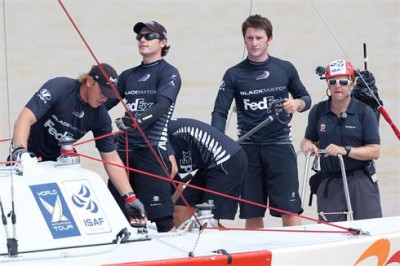 This weekend Adam Minoprio and his ETNZ/Blackmatch Racing crew were crowned as the new world champions of the ISAF World Match Racing Championships series, winning the Monsoon Cup in Malaysia, the last race of the circuit. The finals were telecasted live and clearly demonstrated that matchracing is fun to watch and very suitable for television in contrast with for example fleet racing. With modern on board coverage and back-up graphic tools, the viewer is enjoying a live-man-to-man yachting experience. Adding the fact that match racing in the WMRC format should be attractive for sponsors spectators and cities and taking into account the growth of the sports, I believe match racing has a great future ahead.
This weekend Adam Minoprio and his ETNZ/Blackmatch Racing crew were crowned as the new world champions of the ISAF World Match Racing Championships series, winning the Monsoon Cup in Malaysia, the last race of the circuit. The finals were telecasted live and clearly demonstrated that matchracing is fun to watch and very suitable for television in contrast with for example fleet racing. With modern on board coverage and back-up graphic tools, the viewer is enjoying a live-man-to-man yachting experience. Adding the fact that match racing in the WMRC format should be attractive for sponsors spectators and cities and taking into account the growth of the sports, I believe match racing has a great future ahead.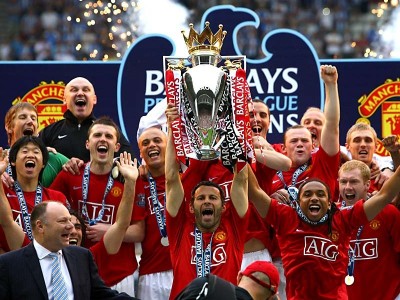 It is still early days in the different European football competitions. In most cases we are not even halfway yet. Nevertheless speculating in the different countries on who will become the league champion has already started again. In most leagues the usual suspects are being mentioned, no surprise really….However, in some leagues there seem to be some new kids on the block. Whether it is FC Twente in The Netherlands, Sporting Braga in Portugal, Odense in Denmark or Bayern Leverkusen in Germany, all are relatively new to the art of winning their league, but all these teams are currently in the lead. The odds (as we will see) are against and I’ll bet you that in the end quite a few of these exotics will not realize their dream, at least not during this season.
It is still early days in the different European football competitions. In most cases we are not even halfway yet. Nevertheless speculating in the different countries on who will become the league champion has already started again. In most leagues the usual suspects are being mentioned, no surprise really….However, in some leagues there seem to be some new kids on the block. Whether it is FC Twente in The Netherlands, Sporting Braga in Portugal, Odense in Denmark or Bayern Leverkusen in Germany, all are relatively new to the art of winning their league, but all these teams are currently in the lead. The odds (as we will see) are against and I’ll bet you that in the end quite a few of these exotics will not realize their dream, at least not during this season.